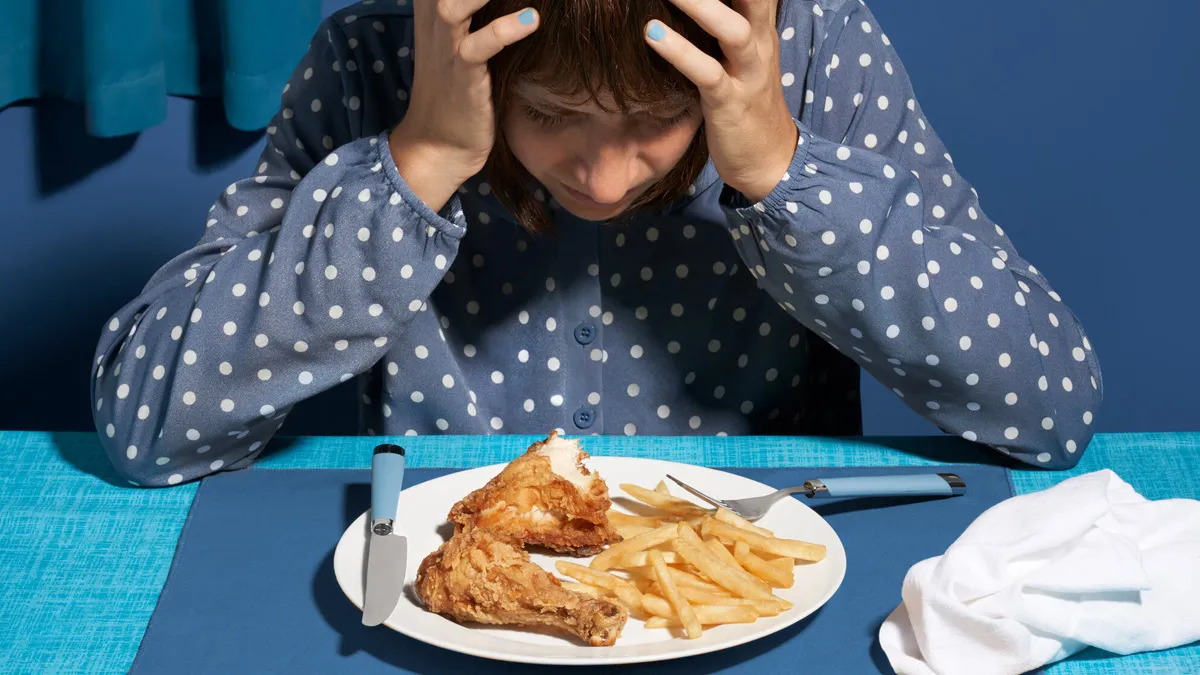Experiencing a headache after eating can be both frustrating and confusing. For many, this discomfort strikes minutes or hours after a meal and can interfere with daily life. Understanding the root causes is crucial for prevention and effective treatment. Below, we explain in detail the possible reasons why headaches occur after eating and what you can do to manage them.
Understanding Postprandial Headaches
The term postprandial refers to the period following a meal. A postprandial headache can vary in severity, ranging from mild tension to throbbing migraines. These headaches may be linked to blood sugar fluctuations, food sensitivities, or other health conditions. Knowing the underlying cause is the first step toward long-term relief.
1. Blood Sugar Fluctuations and Reactive Hypoglycemia
One of the most common reasons for headaches after eating is blood sugar imbalance. When we consume foods high in refined carbohydrates or sugar, our body releases insulin to regulate glucose. Sometimes, this response is exaggerated, causing reactive hypoglycemia—a rapid drop in blood sugar levels.
Symptoms may include:
- Headache or migraine
- Dizziness or shakiness
- Irritability
- Fatigue
To minimize this, choose meals rich in complex carbohydrates, lean proteins, and healthy fats, which stabilize blood sugar and provide sustained energy.
2. Food Allergies and Sensitivities
Another major contributor to headaches after eating is food intolerance or allergy. When your body reacts negatively to certain foods, it can trigger inflammation, which in turn may cause headaches.
Common triggers include:
- Dairy products
- Gluten
- Eggs
- Soy
- Tree nuts
Additionally, histamine-rich foods such as aged cheeses, fermented products, and wine may provoke headaches in sensitive individuals. Keeping a food diary can help identify specific culprits.
3. MSG and Food Additives
Monosodium glutamate (MSG) and other additives are widely present in packaged or restaurant foods. Some individuals experience “Chinese restaurant syndrome”, where consuming MSG triggers symptoms like headaches, sweating, and flushing.
Other additives such as artificial sweeteners (aspartame, sucralose) and preservatives like nitrates (found in processed meats) are also linked to post-meal headaches. Reducing processed food intake can significantly decrease headache frequency.
4. Dehydration and Electrolyte Imbalance

Many people overlook hydration as a factor in post-meal headaches. Eating salty foods or consuming alcohol can lead to fluid imbalance, triggering dehydration-related headaches.
Solutions include:
- Drinking adequate water throughout the day
- Replacing electrolytes after exercise or alcohol consumption
- Limiting salty, processed foods
5. Caffeine Withdrawal or Excess
Caffeine is a double-edged sword. While it can sometimes relieve headaches, overconsumption or withdrawal can trigger them. If you drink coffee with your meal, your body may become dependent. Missing your usual dose or suddenly cutting back can lead to caffeine withdrawal headaches after eating.
To avoid this, moderation is key—limit intake to 1–2 cups daily and avoid consuming caffeine late in the day.
6. Migraines Triggered by Food
For those prone to migraines, specific foods can be powerful triggers. Migraines are neurological headaches often linked to genetics and brain sensitivity.
Foods commonly associated with migraines include:
- Chocolate
- Aged cheeses
- Red wine
- Processed meats
- Citrus fruits
Migraines may also be triggered by irregular eating schedules. Skipping meals or eating at inconsistent times can disrupt metabolism and initiate a migraine attack.
7. High Blood Pressure After Eating
Some individuals experience a rise in blood pressure after eating, especially if the meal is high in sodium or fat. Elevated blood pressure can increase tension in blood vessels, resulting in headaches.
Monitoring blood pressure levels and reducing sodium intake can help manage this type of headache. A balanced diet rich in fruits, vegetables, and whole grains is highly beneficial.
8. Digestive Disorders and Headaches
The gut-brain connection is powerful, and digestive issues often manifest as headaches. Conditions such as acid reflux, gastritis, and irritable bowel syndrome (IBS) can contribute to discomfort after meals.
Poor digestion can also lead to gas and bloating, placing pressure on the diaphragm and triggering headaches. Supporting digestion with smaller, balanced meals and avoiding overeating can provide relief.
9. Alcohol and Postprandial Headaches
Alcohol is a well-known trigger for headaches due to its vasodilatory effects and its ability to dehydrate the body. When combined with certain foods, alcohol can worsen headache symptoms.
Red wine, in particular, contains histamines and tannins, both of which are linked to migraine onset. Limiting alcohol consumption or pairing drinks with hydrating water can reduce risks.
10. Stress and Tension-Related Eating Habits
Sometimes, the cause of a headache is less about what we eat and more about how we eat. Stressful eating, rapid consumption, or poor posture during meals can increase the risk of tension headaches.
Adopting mindful eating practices—chewing slowly, sitting upright, and creating a calm dining environment—can reduce post-meal discomfort.
When to Seek Medical Help
While occasional headaches after eating are common, persistent or severe symptoms should not be ignored. Seek medical advice if you experience:
- Frequent migraines after meals
- Severe, throbbing headaches with vision disturbances
- Headaches accompanied by nausea or vomiting
- Sudden onset of severe headache after eating
A healthcare professional can rule out serious conditions such as diabetes, hypertension, or food allergies.
Practical Tips to Prevent Headaches After Eating
- Eat regular, balanced meals without skipping.
- Stay hydrated before, during, and after meals.
- Limit processed foods, additives, and excessive sugar.
- Identify and eliminate food triggers using a food diary.
- Practice mindful eating to reduce stress and tension.
- Get adequate sleep and exercise to regulate overall health.
Conclusion
Headaches after eating are often caused by blood sugar fluctuations, food sensitivities, dehydration, or digestive imbalances. Identifying personal triggers and maintaining healthy eating habits are key to prevention. If symptoms persist, consulting a healthcare provider is essential for proper diagnosis and treatment.


